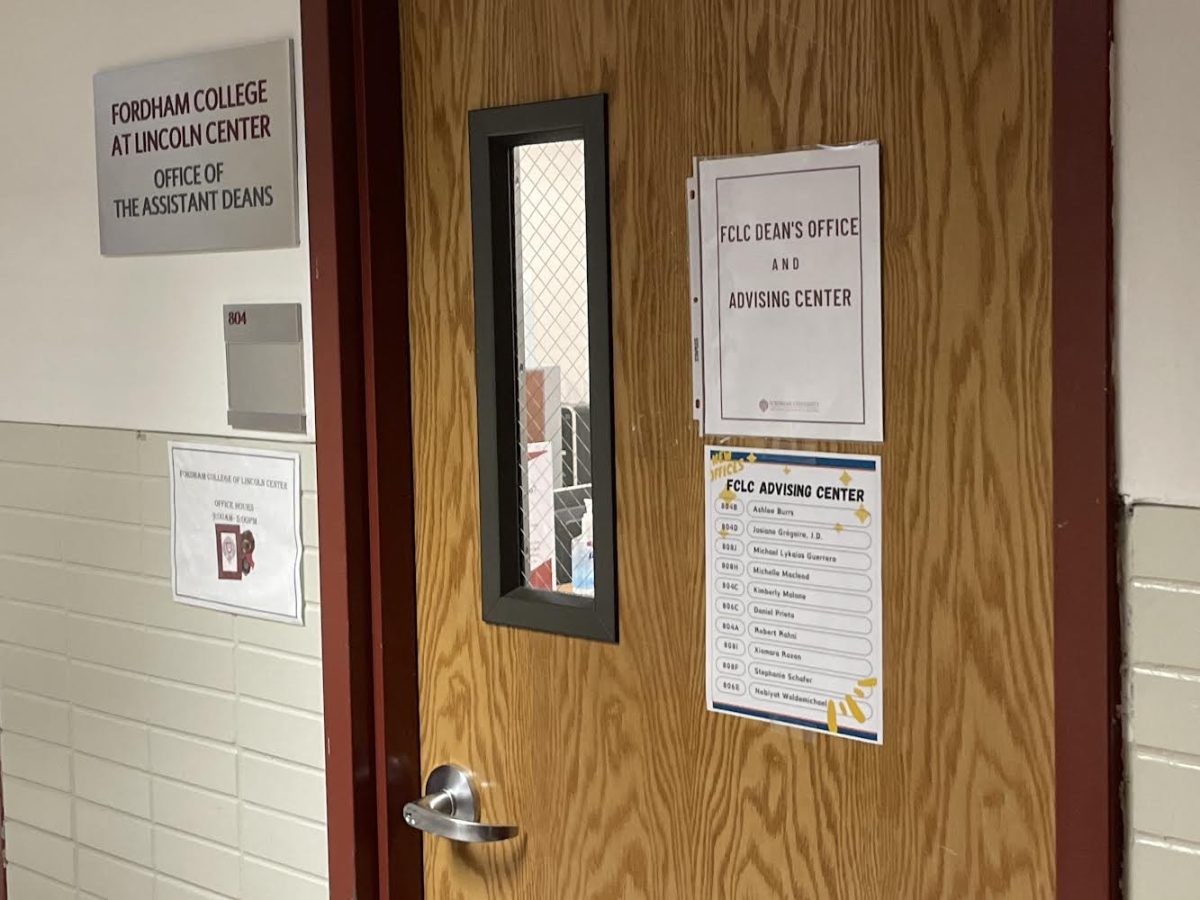As the class of 2026 at Fordham College at Lincoln Center (FCLC) transitions into their upperclassmen years, they enter the second phase of Fordham’s revamped academic advising system. After receiving guidance from one of eight professional advisors during their first two years, students were appointed a new advisor over the summer specifically trained to assist with post-graduation planning.
The new advising model was first implemented in fall 2022 for the incoming class of 2026. The initiative also included the launch of the Fordham College Advising Center to enhance this process further. Fordham’s advising overhaul is part of a broader plan to improve academic support services.
Chianne Rice, FCLC ’26, highlighted some initial challenges and eventual benefits with the new model.
Ashlee Burrs, associate dean for academic advising, said an expanded team of advisors will improve everyone’s experience with the system.
“I cannot speak for the current advisors, but the addition of more advisors creates a larger support system for the advisors and the students,” she said.
Students will be assigned both professional and faculty advisors throughout their four years at Fordham. Professional advisors address general concerns regarding course scheduling, degree plans, and forms and paperwork. The faculty advisor acts as an academic mentor, a role which includes answering questions about future careers, attending graduate school and obtaining internships.
Chianne Rice, FCLC ’26, highlighted some initial challenges and eventual benefits with the new model.
“Michelle MacLeod was our advisor for the first 2 years. She came to Fordham fresh when we were freshmen,” Rice said. “At first, it was hard to work with her because she was new to Fordham, and so were we, but she ended up being really helpful in the long run when coming up with degree plans to pursue other majors/minors.”
Ava Melville, FCLC ’26, expressed dissatisfaction with the recent transition to a new professional advisor due to the rapport she built with her previous one.
“I actually am really put off by it. I feel like I worked really hard to forge a good relationship between my advisor and myself because I knew if I did, it would be easier to reach out to her and get things done quicker,” Melville said. “She also knew me very well and was able to tailor my schedules to be interesting as well as satisfying as many credits as possible. Now that it is a new person, I’m having to start over from scratch halfway through college, and it’s frustrating.”
The model was designed to address concerns over inconsistent guidance and to ensure that students can receive the academic support they need.
While Melville and Rice both described positive relationships they fostered with their advisors, Stephanie Mecir, FCLC ’26, described a different experience she had throughout these past two years.
“Every advisor I’ve worked with has been accessible, kind, and willing to work with me. Unfortunately, I am on my fourth advisor, sixth if you include my major advisors. It seems like there’s always a huge turnover and every advisor is new, left to figure things out with me instead of guiding me,” Mecir said. “While I wish there was more stability in the system, I’ve always just figured it out and been fine.”
The new model of advising was conceived after Laura Auricchio, dean of FCLC, and Maura Mast, dean of Fordham College at Rose Hill (FCRH), received feedback from the Task Force on Undergraduate Advising. Following that advice, the model was designed to address concerns over inconsistent guidance and to ensure that students can receive the academic support they need.
In a joint statement to The Observer, Auricchio and Mast expressed their enthusiasm about the recent appointments of advisors for the junior class.
“We are delighted that, with the hiring of Academic Advisors for Juniors at FCLC and FCRH, we are one step closer to providing all of our students with the tandem support of professional and faculty advisors,” Auricchio and Mast wrote in an email.
The Class of 2025 is the last class operating under the previous advising model. Upon graduation, FCLC will fully transition to the new system for all future cohorts.
Andrew Armour contributed additional reporting to this piece.



